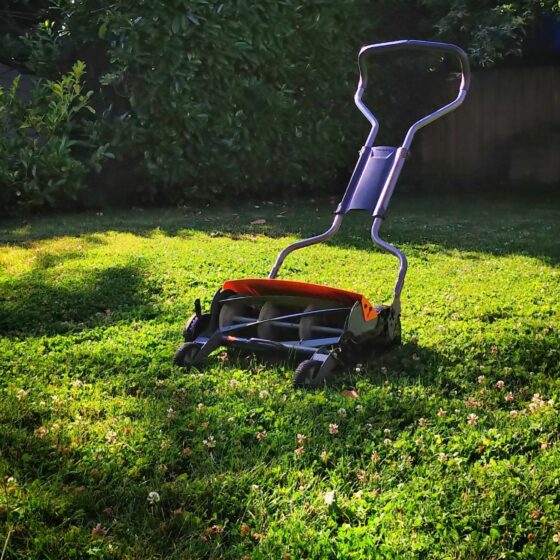Rosemary isn’t just a common ingredient in a variety of delicious meals. This wonderfully fragrant herb is also perfect for creating infused oils and essential oils, which are beneficial in many ways.
They’re good for your hair and complexion and can even repel insects. What more can you ask for?
This easy tutorial will show you how to make essential rosemary oil in just a few simple steps and spare you lots of money you’d normally spend on store-bought products containing this natural wonder.
Let’s get cooking.
What Can You Use Rosemary Oil For?
Rosemary oil provides numerous benefits, both for your hair and your overall health.
For example, rosemary oil can:
- Stimulate hair growth
- Soothe the scalp
- Improve circulation
- Reduce inflammation
- Help relieve stress and anxiety
- Improve cognition
- Help relieve pain
- Improve liver health
- Improve digestive health
- Repel bugs, etc.
Surprised? We bet. This versatile oil can do a lot for you, and we’re only just scratching the surface.
Now let’s get down to it and make some essential rosemary oil.
Before You Make Your Rosemary Oil Extract
There are two things you have to do before getting down to making rosemary-infused oil:
Pick a Suitable Carrier Oil
In essence, good carrier oil is one that won’t interfere with the fragrant scent of the rosemary and won’t evaporate easily.
The best candidate for the job will also depend on what you’re planning to do with the rosemary oil extract once you make it.
- (Extra-virgin) olive oil is an excellent choice if you intend to use rosemary-infused oil for cooking.
- If you’re planning to use rosemary-infused oil for beauty products and hair treatments, jojoba oil, sweet almond oil, or rosehip oil will do the trick. You can also make rosemary essential oil with coconut oil for this purpose.
- If you’re after a light concoction that’s not extremely oily and that you can use on your body, use grape seed oil as a carrier.
Figure Out the Amount of Rosemary Oil You Need
Though it may be tempting to make a large batch of rosemary oil, this may not be the best idea, especially if you’re using fresh rosemary.
Unfortunately, rosemary oil made from fresh rosemary tends to spoil very quickly (you’ll get to enjoy it for only about a week before it starts getting rancid), so it’s essential not to go overboard with the amount you’ll make.
And, making a smaller amount shouldn’t be a problem since a little rosemary oil typically goes a long way (for example, you’ll only need a small glass jar of oil for a few hair treatments).
On the other hand, rosemary oil made from dried rosemary leaves will last you much longer if stored properly — about a year.
How to Make Homemade Rosemary Oil — Three Easy Methods
Making rosemary oil is incredibly quick and easy, and it doesn’t require any extravagant ingredients or tools. All you’ll need is some rosemary (both fresh and dried are fit for the job), a couple of dishes you certainly have in your home, a little bit of free time, and some patience.
Now, let’s check out some of the most common oil-extracting techniques!
How to Make Rosemary Oil From Fresh Rosemary
This method is perfect for those who grow their own rosemary.
Here’s what you’ll need to craft it:
- 3–4 fresh rosemary sprigs with lush, healthy-looking leaves
- A clean and dry glass jar with a well-fitting lid
- Two cups of the carrier oil of your choice
- A strainer or cheesecloth
- A saucepan
Step 1: Harvest and Rinse
Start by harvesting fresh rosemary sprigs. It’s best to do this in spring or early summer (just before it flowers) when the essential oil levels in the plant are at their peak.
You’ll only need about a cup of rosemary leaves to make essential oil from rosemary, so you won’t need plenty of sprigs (three or four should suffice).
Step 2: Dry and Strip
- Thoroughly rinse the cuttings under cool water.
- Shake off any excess water, use a paper towel to pat the rosemary dry, and let it air dry completely. Make sure there’s no water left on your rosemary leaves, as water may spoil your oil.
- Strip the sprigs off their leaves (you’ll need about a cup of leaves for this).
Step 3: Mix and Simmer
- Put your rosemary leaves in a saucepan and pour about two cups of carrier oil over them.
- Mix the ingredients well.
- Put the saucepan on your trusty (induction) cooktop set at a low temperature.
- Heat the oil and rosemary for 10 minutes, stirring constantly.
Tip — Make sure the oil isn’t too hot. If the oil is bubbling, turn down the heat.
Step 4: Strain and Store
- Let the mix cool to room temperature, then strain it to remove all the rosemary leaves. For this, you can use a metal strainer or cheesecloth.
- Once cool, collect the oil in a clean glass jar.
- Put the rosemary oil in your classy French door refrigerator, and use it all as soon as possible (within a week).
How to Make Rosemary Oil With Dried Rosemary
If you don’t have fresh rosemary on hand, you can also use dried rosemary to make a homemade rosemary essential oil. Such oil will also have a longer shelf life.
To make rosemary–infused olive oil (or rosemary-infused coconut oil), you’ll need the following items:
- 1/4 cup of dried rosemary leaves (if you only have fresh rosemary, you can put it in the oven at 180 °F for about two hours to dry)
- A clean, dry glass jar or a bottle with a lid
- Coconut oil or olive oil
- A strainer
- Cheesecloth
- Another bottle or container
And this is what you’ll need to do:
- Put dried rosemary leaves in a sterilized jar.
- Add enough oil to cover the leaves completely.
- Seal the jar tightly and leave it in a sunny spot (e.g., a windowsill) for two weeks.
- Strain the oil using a piece of cheesecloth to remove rosemary leaves.
- Pour the strained oil into a suitable container and store it in the pantry.
Rosemary oil made using this technique can last for up to a year if stored properly.
Make Rosemary Oil at Home Using a Slow Cooker
- Put about a cup of freshly picked rosemary leaves into your quality slow cooker.
- Cover the leaves with two cups of carrier oil of your choice.
- Cook the leaves at the highest temperature, uncovered, for about an hour. Stir occasionally.
- Allow the mixture to cool to room temperature for at least half an hour.
- Strain the oil to remove the leaves.
- Pour the oil into containers and seal them tight.
- Store the oil in the fridge and use it up in a week max.
How to Make Your Homemade Rosemary Oil Last Longer
The answer is simple — use dried rosemary to make rosemary-infused oil. As we already mentioned, oils made with dried rosemary leaves can last up to a year if stored properly.
Fresh rosemary can be a source of Clostridium botulinum, a bacterium that produces harmful (even potentially deadly) botulinum toxins.
This botulism-causing bacterium thrives in oxygen-deprived environments such as sealed oil containers, and this is why it’s essential to keep rosemary-infused oils made with fresh rosemary in the fridge and use them up within a week of making them.
To prevent contamination with other harmful bacteria that could spoil your rosemary oil and contribute to its untimely demise, use sterilized containers and rub the inside of the lids with rubbing alcohol.
How to Acidify Rosemary
There’s another way to prevent Clostridium botulinum from spoiling your rosemary oil — try to acidify rosemary before infusing your oil with it.
All you have to do before you try to make essential rosemary oil is to:
- Make a 3% citric acid solution (mix one tablespoon of citric acid with two cups of water).
- Soak fresh rosemary (leaves still attached to the stems) in the citric acid solution (1.5 cups of rosemary and two cups of citric acid solution).
- Leave the herbs in the solution at room temperature until they lose their green color (about 24 hours).
Conclusion
No matter which method you choose, if you follow our instructions, you’ll be able to make your own batch of aromatic, high-quality rosemary-infused oil in no time. In other words, you’ll be able to make cooking oil, a cure for thinning hair, and an ally against anxiety all in one.
So, what are you waiting for? Start experimenting with this versatile oil today!
FAQ
Is it easy to make rosemary oil at home?
It’s fairly easy to make your own rosemary oil. All you need are rosemary leaves and the carrier oil of your choice.
The easiest way to do this is to mix dried rosemary leaves and olive/coconut oil in a sterile jar and leave it on a sunny window for two weeks. After two weeks, you should strain the oil to get rid of leaves, and your infused oil will be good to go!
How long does it take to make rosemary oil?
The answer to this question largely depends on the manufacturing process.
If you intend to boil fresh rosemary leaves, the process might take under 15 minutes. Preparing rosemary oil in a slow cooker will take a bit longer (about one hour), while doing so with dried rosemary leaves usually takes about two weeks.
How to make rosemary oil for hair?
There’s no special process intended for making rosemary oil for hair.
All you have to do is make rosemary-infused oil as usual (check out the instructions on how to make rosemary oil above) and add a few drops of it to your shampoo or conditioner.
Alternatively, you can mix a couple of drops of rosemary essential oil with a carrier oil to make a hair-revitalizing oil you can apply overnight.













